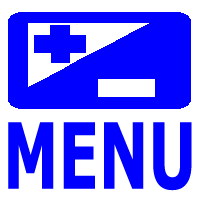Data Types in C Language
A data type in C programming specifies the type of variables or functions, so that the compiler knows what type of data and how much space it occupies in storage. C language provides various data-types which allow the programmer to specify the appropriate variable type to set its value.
In the C language, there are five different categories of data types, which are shown below :
- Basic Data Type - int, char, float, double, void
- Derived Data Type - array, pointer, structure, union
- Enumeration Data Type - enum
- Bool Data Type - true or false
Basic Data Type
The C language has four basic or primary data types, they are:
1. Character - ASCII character set or generally a single alphabet like 'A', 'b', '#', '%' etc.
2. Integer - Used to store whole numbers like 0, 1, 5, 47, 150, 1700, etc.
3. Floating-point - Decimal point or real numbers values like 49.7, 15.9, etc.
4. Double - Very large real numbers which are not allowed in floating point type.
5. Void - It holds no value and generally is used for specifying the type of function or return type.
| Data Types | Storage Size | Value Range |
|---|---|---|
| char | 1 byte | -128 to 127 |
| signed char | 1 byte | -128 to 127 |
| unsigned char | 1 byte | 0 to 255 |
| short | 2 byte | -32,768 to 32,767 |
| signed short | 2 byte | -32,768 to 32,767 |
| unsigned short | 2 byte | 0 to 65,535 |
| int | 2 byte | -32,768 to 32,767 |
| signed int | 2 byte | -32,768 to 32,767 |
| unsigned int | 2 byte | 0 to 65,535 |
| short int | 2 byte | -32,768 to 32,767 |
| signed short int | 2 byte | -32,768 to 32,767 |
| unsigned short int | 2 byte | 0 to 65,535 |
| long int | 4 byte | -2,147,483,648 to 2,147,483,647 |
| signed long int | 4 byte | -2,147,483,648 to 2,147,483,647 |
| unsigned long int | 4 byte | 0 to 4,294,967,295 |
| float | 4 byte | 1.2E-38 to 3.4E+38 |
| double | 8 byte | 2.3E-308 to 1.7E+308 |
| long double | 10 byte | 3.4E-4932 to 1.1E+4932 |
Derived Data Type
The data-types that are derived from the primitive or built-in data types are referred to as Derived Data Types. Derived data types are nothing but primary data types but a little twisted or grouped together like an array, structure, union, and pointers.
Enumeration Data Type
Enumeration (or enum) is a user defined data type in C. It is mainly used to assign names to integral constants, the names make a program easy to read and maintain. Example :
enum signal {red = 0, yellow = 1, green = 1};
Bool Data Type
A boolean is a data type in the C Standard Library which can store true or false. Every non-zero value corresponds to true while 0 corresponds to false. Example :
bool x=false;


